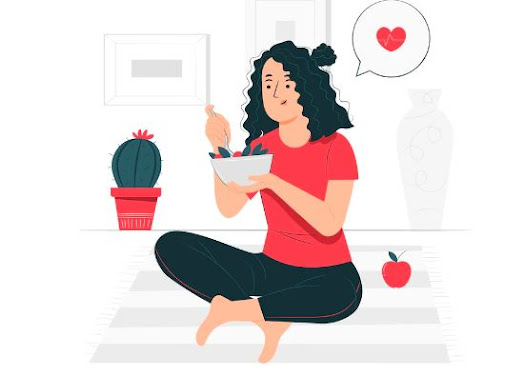What is the Difference Between Eating Disorders and Disordered Eating?
Indians are known to consume different types of foods, especially spicy ones. Disordered eating is considered to be an epidemic in Indian culture. Many being unaware tend to consume foods that are not at all good for health. This, in turn, results in developing disordered food behaviours. Around 35% ‘normal dieters’ are found to exhibit pathological dieting pattern.
Eating disorder and
disordered eating
People suffering from eating disorders generally display
disordered eating. However, all disordered are not diagnosed with full-fledged
eating disorder. Difference can be stated in severity and frequency of
behaviours as well as the directress caused to the person. If you are
experiencing any of the issue, you should immediately visit a professional dietitian and get a
well-planned out diet. It should be healthy, nutritious and filling.
Their similarity
Disordered eating occurs if you are found to engage in
abnormal food behaviours or eating patterns regularly. It fails to apply to
those experiencing specific health issues or food intolerances. Perhaps, there
may be no choice present, but maintain certain diet. Those practicing
disordered eating may be noticed to cope up with several uncomfortable
emotions.
Issues faced
Perhaps, they tend to focus on calorie intake or weight to
get distracted from other life aspects that they feel inadequate. On reaching
the set weight goals, they often set a lower one. It is how eating disorders
tend to develop. On the other hand, emotional eating causes binges or develops
bulimia nervosa or binge eating disorder. People experiencing disordered food behaviours,
may feel quite anxious about food.
Moving towards eating
disorder
Food shaming is considered to be negative talk about food
that is directed either at oneself or others. It only develops hostility
towards food as well as a culture where disordered eating tends to become the
norm slowly. This particular aspect only worsens with people getting more interested
in ‘clean’ or ‘healthy’ eating.
Development of
disordered food behaviours
Restrictive diets like Paleo diet, veganism or gluten-free
diet may cause disordered food behaviour. It is not that everyone practicing
such rigid food rules experience eating disorder. Some may even are reported to
derive specific health benefits. Such diet’s social acceptability might only make
it more troublesome to detect people struggling with them.
Is it possible to prevent
disordered eating?
It becomes essential to prevent disordered eating habits. It
should be done before it causes eating disorder! Professional help might be
desired based on the severity faced by individual behaviour. If you practice
intuitive eating and fear foods, then you should consult immediately a
registered dietician. In case the underlying cause for the development of such
disordered food beavers is the result of psychological issues, then consult a
psychotherapist.
Avoiding crash diets
If you are a fitness freak, then remember, crash diets will
not do any god. It is necessary to understand that food provides nutrition and
energy to the body. Hence, you need to be aware of disordered eating and eating
disorders to ensure healthy, disease-free life.


Comments
Post a Comment